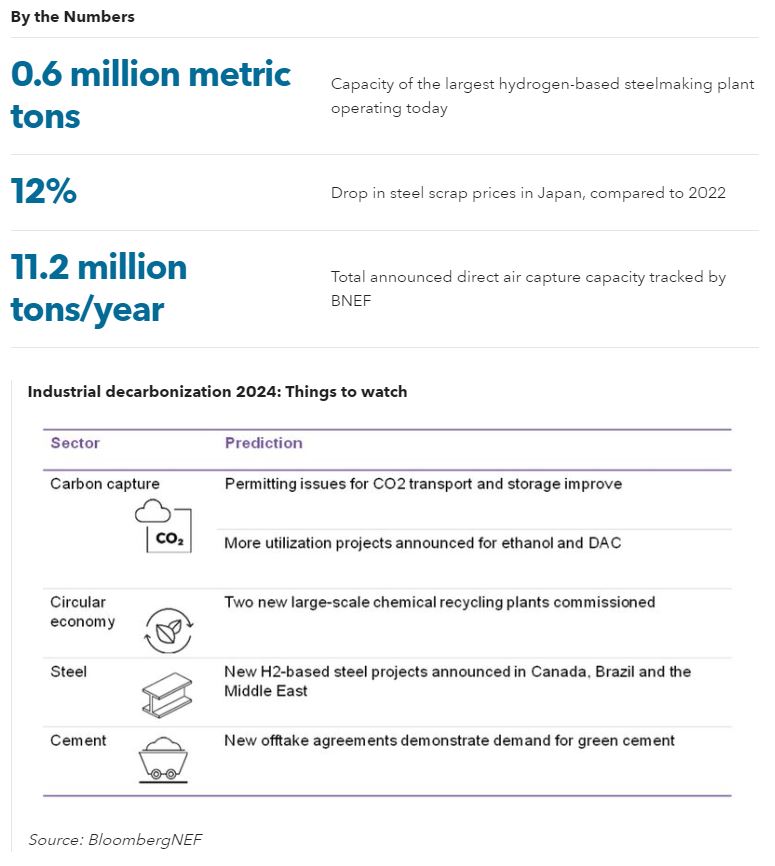By Julia Attwood, Industrial Decarbonization Specialist, BloombergNEF
The year 2023 did not quite live up to expectations, but it still brought the first large-scale hydrogen-based steel production, marked progress in plastic chemical recycling, and large direct air capture announcements. Now, 2024 could bring greater diversity of projects and more focus on bottlenecks – with permitting woes for carbon capture addressed, more countries committing to green steel projects, and the first demand signals for green cement.

- Carbon storage could get some relief. In 2024, carbon capture is expected to get some relief from its permitting issues as the US sets new goals for getting CO2 storage sites approved. However, for the applications that can pivot to utilization, there will be new CO2 utilization opportunities for synthetic fuels and chemicals to access CO2 feedstock.
- The advanced plastic recycling sector will scale. Given the backlog of chemical recycling projects teetering on the point of commissioning, at least two of these large-scale advanced plastic recycling plants should come online in 2024. These will most likely be in the US, but with strong circular economy legislation, Europe could pip the US.
- Popularity will expand for low-carbon steel and cement. The popularity of hydrogen-based steel projects will expand to the Americas and the Middle East, after a long list of announcements from China and Europe. The cement industry needs to sign some major offtake agreements to ensure the viability of its newly announced green capacity.
- Trends in transition finance and just transition partnerships might benefit industry. Particularly in APAC, transition finance might be used to fund low-carbon steel and cement projects that wouldn’t qualify as ‘green’ under current sustainable finance regulation. South-East Asian industrial economies could benefit from just energy transition partnerships.
- Progress in 2023 was more muted than BNEF predicted. Looking back, most aspects of industrial decarbonization made progress in 2023, with new announcements for hydrogen-based steel, bioplastics, and cement plants using carbon capture to reduce emissions to near zero. However, this progress was more muted than in previous years, as costs rose with inflation and companies struggled to access equipment and feedstock.
BNEF clients can access the full report here.